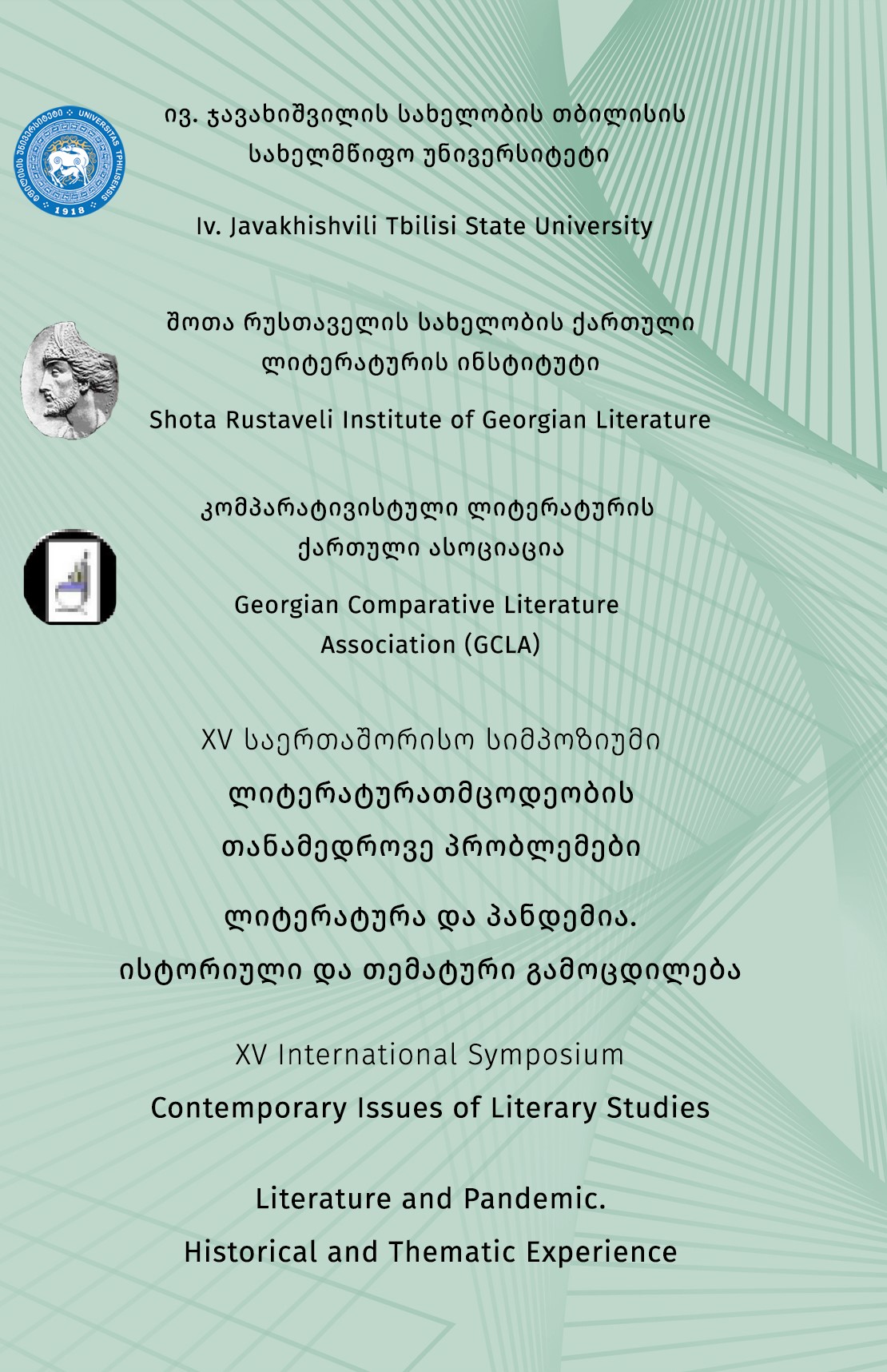Abstract
Pandemics have been regarded as a manifestation of God’s wrath since ancient times, including late Middle Ages. “Feast in Time of Plague” – this masterpiece of A. Pushkin has already become a metaphor, a trope, and perhaps more of an oxymoron, created by the seemingly incompatible unity of two mutually exclusive concepts-contexts: “Feast” and “Plague”. This masterpiece of the cycle of “Minor Tragedies” has in fact rallied against a number of Christian virtues. The protagonist Walsingham and his companions try to dispel the memory of death and eliminate the fear of death from the heart and mind. According to John Sinaites, “remembrance and fear of death” is one of the main Christian virtues that Christians must strive to perpetuate. Pursuing these virtues helps the sinful to exercise self-control and innocence. To avoid the fall. Pushkin describes the amazing attempts to disregard death in the realm of death itself, when the “Fourth Knight” of Apocalypse has already disappeared and the seal has been unraveled.

